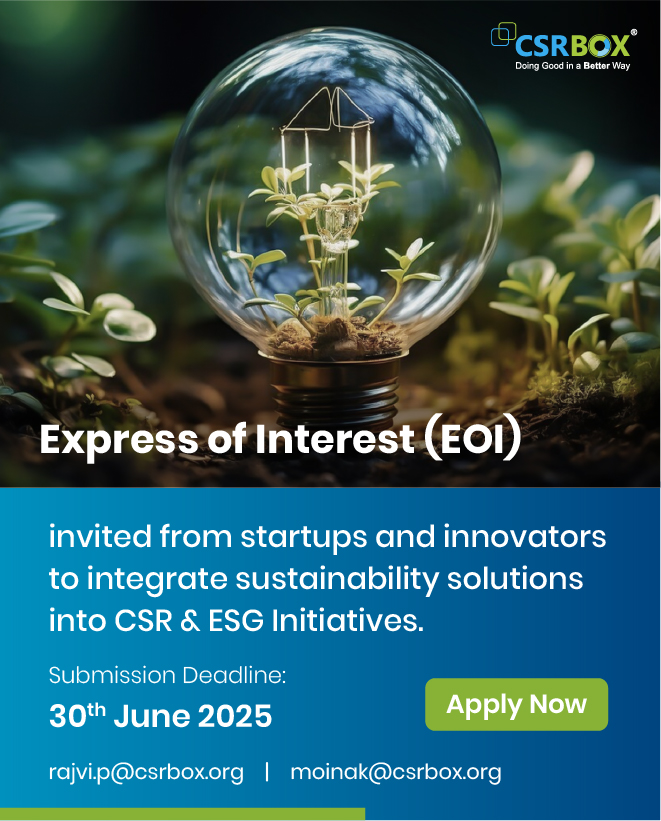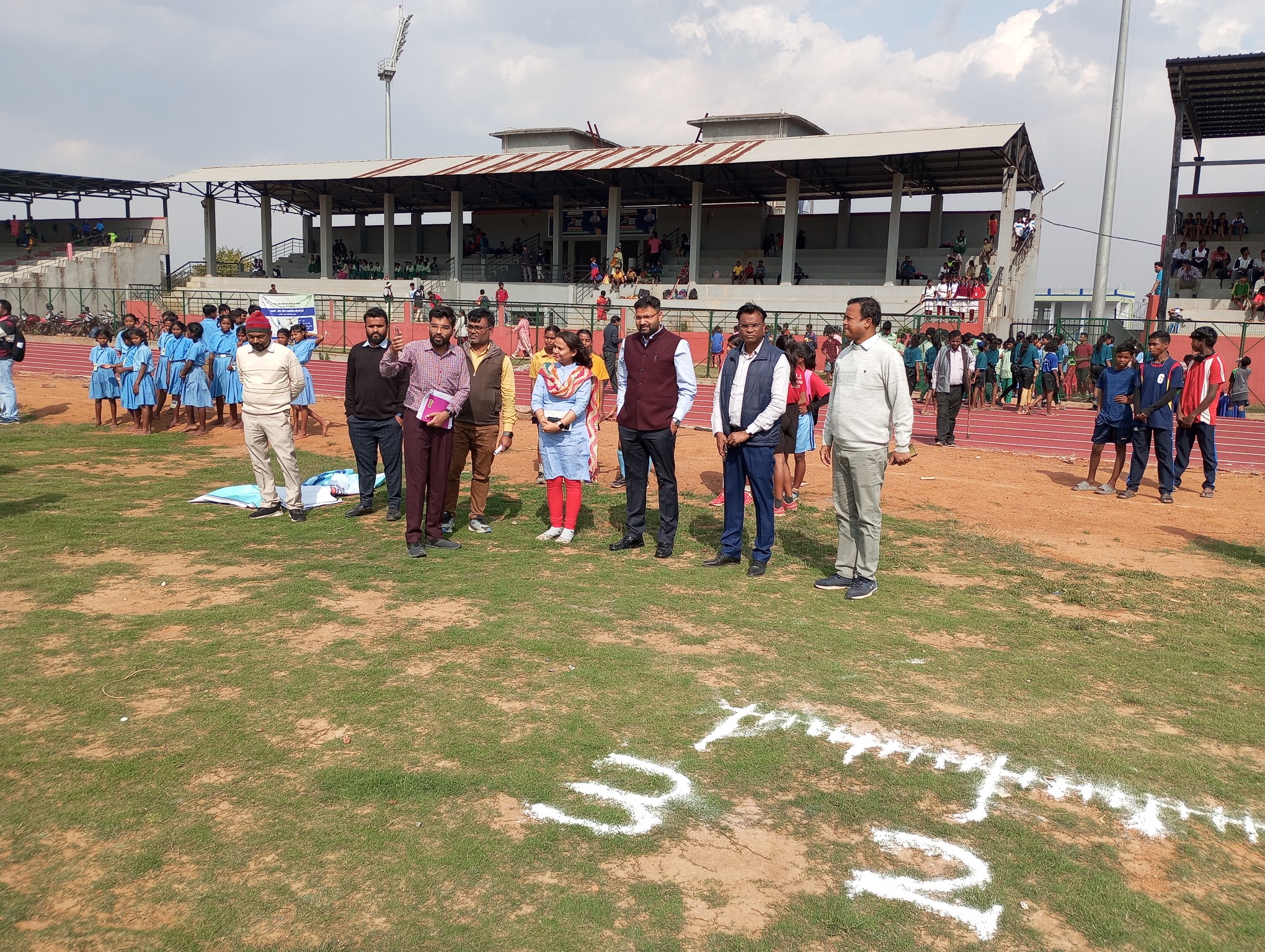Subscribe our Weekly Newsletter
RFP - Non-Profit Organizations for Community Mobilization, Awareness, Capacity Building, Data collection and convergence under GCF-ECRICC Project

Organization: UNDP
Apply By: 01 May 2025
About the Organization
UNDP works in about 170 countries and territories, helping to eradicate poverty, reduce inequalities and exclusion, and build resilience so countries can sustain progress. As the UN’s development agency, UNDP plays a critical role in helping countries achieve the Sustainable Development Goals.
UNDP works in more than 170 countries and territories, helping to achieve the eradication of poverty and the reduction of inequalities and exclusion. We help countries develop policies, leadership skills, partnering abilities, institutional capabilities and build resilience in order to sustain development results.
UNDP is committed to the achievement of Sustainable Development Goals and actively works with Governments at the national, state, and local level to build capacities in policy development, programme implementation and management.
About the Proposal
The Green Climate Fund (GCF) funded project on “Enhancing Climate Resilience of India’s Coastal Communities-ECRICC” supports the Government of India, Odisha, Maharashtra and Andhra Pradesh to enhance climate resilience of the lives and livelihoods of the most vulnerable populations, particularly women, in the coastal areas of India to climate change and extreme events, using an ecosystem-centered and community-based approach. This project also aims to contribute towards the achievement of climate priorities outlined in India’s National Action Plan on Climate Change (2008), the State Action Plan on Climate Change as well as commitments outlined in India’s Nationally Determined Contribution (NDC2015).
The project will help in integrating climate change adaptation – particularly ecosystem restoration and climate-adaptive livelihoods – into coastal management and planning in whose coastal population is vulnerable to extreme events and slow onset climate impacts. Overall, the project will also establish pathways to scale up ecosystem-based adaptation across all of India’s 13 coastal states, islands and union territories, where coastal districts house 14.2% of India’s total population., (NDC,2015). With this holistic vision, planned project interventions will provide direct benefits to 1,744,970 people in the 24 target landscapes in Andhra Pradesh, Maharashtra and Odisha States and indirect benefits to 10 million people in these landscapes of three states.
The project has three main outputs:
Output-1. Enhanced Resilience of Coastal and Marine Ecosystems and their Services.
- Activity 1.1. Conducting vulnerability assessment of the coast to inform planning of ecosystem- and community-based adaptation interventions
- Activity 1.2. Conservation and restoration of coastal ecosystems for increasing ecosystem resilience through restoration of mangroves, saltmarshes, seagrass and watershed in potential areas in the project landscapes.
Output-2. Climate-adaptive livelihoods for enhanced resilience of vulnerable coastal Communities.
This output works primarily in 24 target landscapes in the three states (Odisha, Maharashtra and Andhra Pradesh). The output will help enhance adaptive capacity, including capacity to adapt existing livelihood activities and diversify to climate resilient options, and to do business planning and access finance for scaling up harvesting, agri-and aquaculture operations. It will include working with the line departments, PRI members, communities and CBOs in coastal villages to enhance the integration of ecosystem-based approaches with resilient livelihoods. This will also include developing value chains to ensure uptake and the long-term sustainability of these adaptive livelihoods, including support on business planning, access to finance, certification and labelling of eco-products, and access to markets. Technical assistance will be provided to livelihood activities in two categories: a) livelihoods based on coastal ecosystems restored to buffer climate impacts and establishing value chains to sustain these livelihoods alongside evolving climate impacts; and b) livelihoods that adapt current farming practices to deal with climate impacts on agro-ecosystems. Value chain support activities will be funded by co-finance from the three states.
- Activity. 2.1.Building climate-resilient livelihoods and enterprises through value chains and strengthened access to markets.
- Activity.2.2.Improving capacities of local communities for community-based adaptation and climate-adaptive livelihoods.
Output-3. Strengthened governance and institutional framework for climate-resilient management of coastal areas.
The output provides pathways to replication and scale by extending the approaches to ecosystem restoration carried out in Output 1 and approaches to climate-adaptive livelihood support carried out in Output 2, across all project areas, and also shares knowledge on coastal resilience with countries in the wider South Asian region.
- Activity 3.1.Network of institutions for enhanced climate resilience and integrated planning and governance.
- Activity 3.2.Integrating ecosystem-centric approaches to climate change adaptation into public and private sector policies, plans and budgets, and scaling up finance for EbA.
- Activity 3.3.Knowledge management for coastal resilience.
Objective:
This is a Request for Information (RFI) from Non-Profit Organizations for potential partnership with UNDP in delivering outputs for development projects requiring expertise and experience in the area’s community mobilization, capacity building, training, stakeholder engagement, convergence, data collection and project documentation, implementation support for ecosystem restoration and climate adaptive livelihoods activities, backward and forward linkages in the target landscapes in the coastal districts of Maharashtra.
Proposed intervention to be implemented in 4 districts and 13 Landscapes (Taluka) across 1 State (Maharashtra). Details of districts are as per the table below:
|
S. no. |
State |
Count of District/ Landscape* |
District |
|
1. |
Maharashtra |
4 Districts and 13 Landscapes |
Palghar- (Palghar, Dahanu) Raigad- (Uran, Panvel, Alibaug, Shrivardhan) Ratnagiri- (Guhaghar, Dapoli, Rajapur, Ratnagiri) Sindhudurg- ( Devgad, Malvan, Vengrula) |
|
|
Grand Total |
4 across 1 state |
|
Eligibility
In particular, the organization should have:
- Proven experience of working for 5 years in the field of Climate Adaptive Livelihoods, Natural Resources Management, Eco-system Based Adaptation, Disaster Management, Watershed Management, Rural Livelihoods (preferably in the Agriculture & Fishery Sector), Women Empowerment and Gender, Community and Rural Development etc.
- Minimum 5 years of experience in community institution development, capacity building and building linkages between the community institutions and different opportunities in the government and market. The organization should be able to demonstrate robust engagement in preparation of village level development plans /Micro Plan, livelihood improvement/income generation plans and formation of SHGs and Eco-Development Committees etc.
- The NGO should be well conversant in PRA and other participatory planning tools. The presence and work done in the coastal districts in the field identified above will be an added advantage.
- Experience of conducting awareness programs, sensitization workshops, and technical training on climate adaptive livelihoods, biodiversity conservation, and sustainable practices in agriculture and fisheries.
- Experience of working with the various Line Departments such as fisheries department, agriculture, forestry and rural development department.
- Experience of conducting household and village surveys, participatory rural appraisal and planning and implementation support to ecosystem restoration activities and climate adaptive livelihoods and at landscape and village level.
- Experience in preparation of business/enterprise plans of livelihood activities, handholding support to livelihood groups during implementation of livelihood interventions and financial linkage with banks and other financial institutions,
- Experience of preparation of Management Plans for implementation of the project activities, backward and forward market linkage of livelihood activities to be promoted under the project.
- Experience of facilitating the convergence of government schemes and programs with project activities to optimize resources and benefits for communities.
- The NGO should be working in the same district/landscape in which the concerned District Planning Management Unit is located for at least 2 years and successfully implemented 2 projects funded by International Donors or Government Agencies (Union or State Governments).
- Prior experience of grooming and managing community resource persons/village volunteers, field coordinators etc.
How to Apply
Proposals against RFI may be submitted on or before (01 May 2025) the deadline indicated in the system directly in the portal. It is your responsibility to ensure that your proposal is submitted before the deadline. Offers received after the submission deadline outside the online portal, for whatever reason, will not be considered for evaluation. RFI submission deadline appearing on online portal will be FINAL and prevail on the ones appearing on any other website/s. Kindly ensure that documents uploaded are in the .pdf format (preferably), and free from any virus or corrupted files.
Offers must be submitted directly in Quantum supplier portal following this link: http://supplier.quantum.partneragencies.org/ using the profile you may have in the portal. In case you have never registered before, follow this link to register a profile: Supplier Registration.
For more information please check the Link
Stay in the loop with the newest RFPs and Grants through NGOBOX's WhatsApp Channel. Join now by clicking here!
Latest Online Store
Latest Grants
Latest News
© Renalysis Consultants Pvt Ltd























.jpg)

.jpg)
